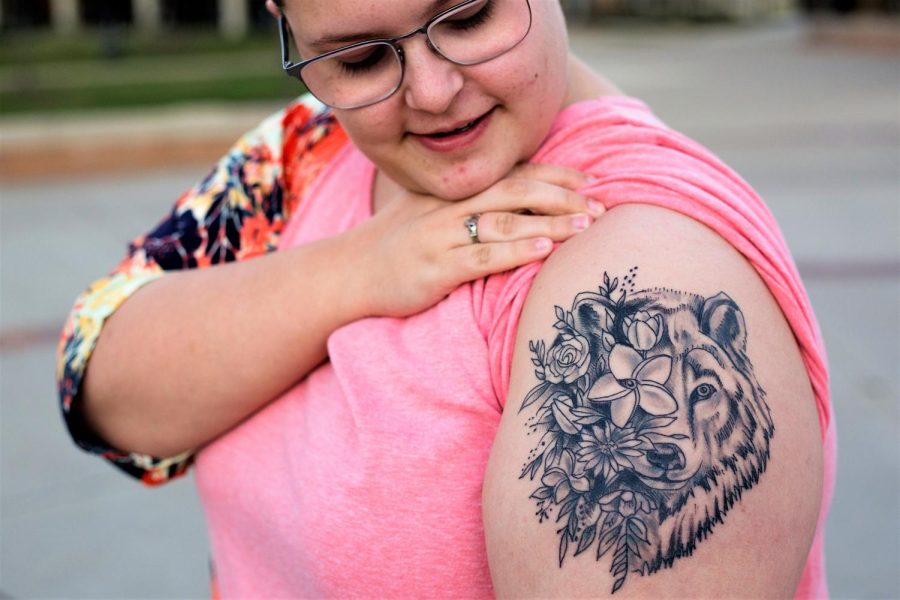Student learns self-expression, overcomes family disapproval
December 2, 2017
When sophomore environmental conservation biology major Sam McCray went away to college, she returned home with multiple tattoos, short hair and a newfound freedom to express herself.
Where she found confidence in her identity, her family found a rebellious teenager who no longer lived up to their expectations.
“They really knew that college was affecting me,” McCray said. “Being able to go and have my own free space was definitely letting me see that I needed to change the way I lived.”
Aside from McCray identifying as a gay woman, she went against her father’s family’s standards for a young woman in other ways.
McCray said her grandfather had a strict rule: if you get a tattoo, you get written out of his will.
“My dad always ingrained in me as a little kid that tattoos are trashy,” McCray said.
Following in the footsteps of her mother’s side of the family, McCray got her first tattoo before leaving for college. She tried to conceal it so her grandfather wouldn’t find out. Before long, however, she started getting more tattoos in more obvious places.
“I was like, ‘No, f— it, I want one where I can show it off,’” McCray said. “My whole family got fired up about them. It was another thing that I had done while I was at college.”
McCray also shaved most of her head.
“I used to have hair down to my shoulders and it had a lot of curls in it and that was my grandma’s favorite thing,” McCray said. “So when she hugs me and she touches the back of my head where I have it buzzed, she cries every time because I don’t have the curls anymore. I’m not that little kid.”
Around the time of President Donald Trump’s inauguration, McCray said her uncle instigated a politically driven argument with her on Facebook.
“Things have always been kind of rocky between me and my dad and my dad’s family because they are so severely conservative and religious,” McCray said.
As the argument escalated, Sam said, she refused to apologize for expressing her own opinion. Her uncle blocked her and told the rest of her family what had happened.
“That’s where everything really started to snowball downhill,” McCray said.
A few months later, after a birthday celebration where her family ignored her, McCray’s mother began discussing with her husband Dave what they might do if McCray’s biological father kicked her out.
“Dave and my mom came to me and they said, ‘You know, if you’re willing, Dave will adopt you so you don’t have to be a part of that anymore,’” McCray said.
The last time McCray spoke to her biological father was in July of 2017.
“My dad is a carbon copy of his dad, so he grew up like that,” McCray said. “It’s not all his fault; he didn’t know how to parent any differently.”
McCray now lives full-time with her mother and adopted father. She said she had not spoken to the rest of her father’s family since Easter of 2017.
“My grandma tried calling me, but I wasn’t in a space where I could handle dealing with that,” McCray said. “Eventually she stopped calling.”
Though McCray resents her family stopped speaking to her because of politics, she said she’s learned a lot.
“I think I’m gonna be a good parent because I’m not gonna do this to my kid,” McCray said.
Carrie George is the administration and diversity reporter. Contact her at [email protected].

























